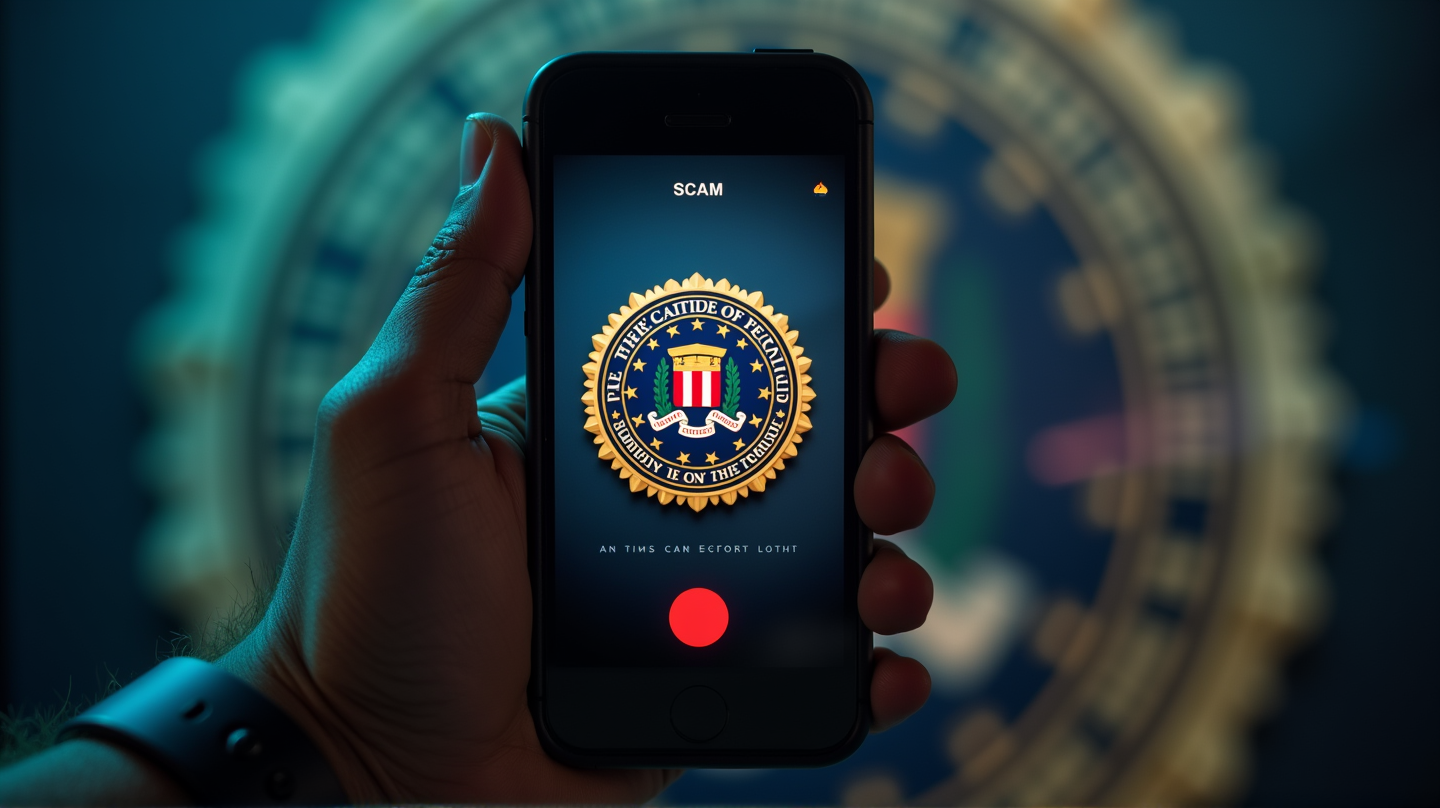In a recent alert, the FBI has cautioned Americans to be on the lookout for a new wave of phone scams lurking behind the guise of law enforcement or government officials. These scams, growing in volume from Las Vegas to Phoenix, are part of organized criminal efforts attributed to international actors, including notorious Chinese hacker groups. The malicious intent is clear—extract your money or personal information under the shadow of authority.
The Threats You Need to Know
Imagine receiving a call or email that seems convincingly legitimate, featuring the FBI Director’s photo or official seals. These scammers master the art of deception, even using caller ID spoofing to make fraudulent calls appear authentic. According to Forbes, this is where vigilance is key—always hang up and report these calls.
Recognizing the Red Flags
A number of tactics define these scams. They range from demanding payment to avoid arrest to crafting tales of frozen Social Security numbers or tricky inheritance plots. Such methods echo the phantom hacker scams earlier this year, where users were misled by fake bank warnings. Note: no real bank or tech support will ask you to move funds or install software under suspicious circumstances.
Real Stories, Real Impact
In a broader context, law enforcement impersonation has become a cross-regional issue. From healthcare frauds targeting the Chinese community to ‘frozen’ accounts, scammers are nothing if not opportunistic. Moreover, this new wave of threats is being fueled by toll scam strategies that have managed viral growth with shocking rapidity.
Staying One Step Ahead
Security experts like Cofense’s Chance Caldwell highlight the relentless nature of these schemes, which can target anyone with a phone—a ubiquitous device most of us engage with more than any inbox. The spread of smishing (SMS phishing) is notable as companies find it harder to monitor employees’ phones compared to emails.
How to Protect Yourself
Cofense’s Max Gannon advises skepticism: Always cross-reference any suspicious links. A quick online search can reveal impersonating URLs. Moreover, group texts or messages sent to multiple people are red flags. When in doubt, rely on verified contacts or go directly to the organization’s official site for confirmation.
A Call To Action
The fight against such phishing threats seems relentless, emphasizing the need for action from both individuals and service providers. Security within SMS services lags far behind email, mainly due to a lack of pressure for better protections. It’s time telecom providers and individuals like you challenge this norm, enhancing vigilance and demanding stronger security measures.
Remember, for anything unexpected or unverified, pause and verify. Hang up, and ensure you’re on official channels when contacting authorities. Let’s share the responsibility of safeguarding our digital lives against these covert threats.
